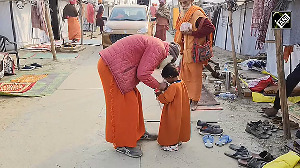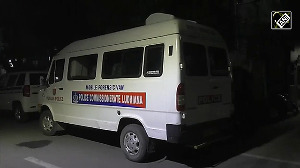Emerging economies led by India and Brazil have informed developed member countries of WTO that they would not accept any dilution of issues concerning food and livelihood security, while agreeing to reject rich nations' unreasonable demands for market access.
As the different groupings of the developing countries met in Geneva on Monday as part of the their renewed attempts to push the Doha trade talks, a consensus emerged that no compromise could be made by the majority of the 150 WTO members "to satisfy their (rich nations) demand of additional market access."
In a series of meetings by members of the G-33, G-20 and NAMA 11, it was decided that while developing countries should continue to engage themselves in the WTO negotiations, there was a concern that the US and EU have "hardly made any movement" in their latest offers on agricultural subsidies.
According to a commerce ministry statement in New Delhi, Commerce and Industry Minister Kamal Nath, while addressing the G-33 meeting, said that the Special Products and Special Safeguard Mechanism were critically important for India and other members of the grouping. "...the issue would not be allowed to be diluted in any way," he said.
The G-33 is a grouping of 46 WTO members, who have come together to resist attempts by the EU and US for seeking greater market access for their agricultural products in the developing countries.
India, a significant leader in the G-20 grouping as well, along with Brazil, said the EU and US have to cut their agricultural subsidies substantially if any further movement in the trade talks were to be made.





 © 2025
© 2025